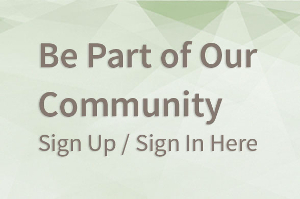BK Blog Post
Everyone Wants to Write a Book
 Posted by
Anna Leinberger,
Editorial Manager, Acqusitions,
Berrett-Koehler Publishers Inc.
Posted by
Anna Leinberger,
Editorial Manager, Acqusitions,
Berrett-Koehler Publishers Inc.
Anna is a writer and editor for Berrett-Koehler in Oakland, CA. More on killer book proposals and writing can be found on her BK Blog.
In a departure from my usual this week, today I want to explore the strange dichotomy of the world of books in an internet age. If there is one thing I have learned in two years of introducing myself as working in the editorial department of a publishing house, it is that somewhere, sometimes deeply buried, everyone dreams of writing a book someday. Sometimes it is a specific book, sometimes it is just a desire to have created your own version of this thing we call “book.”
A shadowy future
When I was brainstorming this post I asked a friend “what do you free associate with books and publishing?” His answers: obsolete, nostalgic, dead paper, musty. In the world of endless content and the morning newspaper having been replaced with newsfeeds, it is generally agreed upon at this point that books are on their way out. But are they? How can we simultaneously view books as obsolete and yet revere them to such a degree that we all want to write one?
A single thought
I have heard a book described as the longest and deepest expression of a single human thought. It is my humble opinion that the internet has not yet managed to replace the specific value add of a book. Writing comes in all lengths online, from 300 word blogs to 20 minute long-form pieces, but as of yet I have not seen someone sit down to browse the internet and end up 70 pages into a novel- even though there are lots of novels available for free online. Sure, the long-form reading we are doing, the social media interacting, etc. takes away time that humans used to spend reading books, but by and large, when we want substantive, authoritative content, we still reach for a book on the subject.
An achievement and a legacy
I will admit- I crowd sourced some thoughts from friends on the internet for this blog. One common theme was that a book is a permanent externalization of your thoughts, ideas, or art. It is a creation, and while all of us might not be Picasso or Ansell Adams, we were all (hopefully) taught to write in high school. Humans are all storytellers to some extent, and I think the book as a medium, hundreds of years after the first folio was bound, still carries the magic left over from a time when it revolutionized the world. We still revere books from 2000 years ago; Horace’s cheeky words about his own writing still echo:
“I built a monument more eternal than bronze/ higher than the regal structure of the pyramids/ which neither a destructive rain, nor the ferocious north wind will be able to tear down/ nor the neverending march of the years and flight of time.” *
Whether the poem or the pyramids will last longer remains to be seen, but he has outlasted the other 6 world wonders already.
A silver lining
Despite the quickly changing nature of how we engage with ideas and content, some technology is opening up new frontiers for storytelling. E-books allow for short stories to exist outside of hefty short story volumes and magazines- they can stand on their own. Though I cannot remember to whom I should attribute this, I read once that an author was excited by e-shorts because he could now respect the true and natural length of a story, as it wants to be told. We do not have to extend a 70 page story to be a 250 page novel. We can read these short books on our phones- and thanks to smartphones, we always have a new book at our fingertips. As the girl who always carried a book with her, even to parties, and who feels panicked at the thought of being stranded somewhere with no book and three hours to kill, I am grateful that this so-called destroyer of books will immediately deliver a book to me anywhere, any time.
*translation is my own





